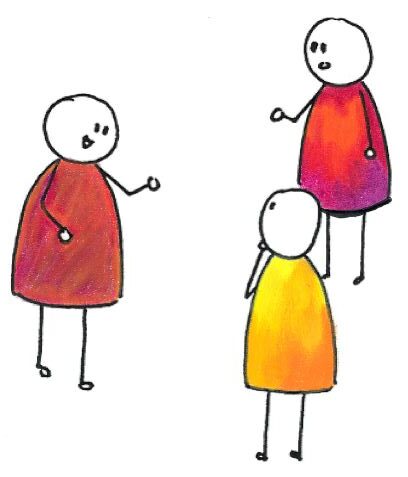Keywords: Homelessness, bureaucracy, values, and ethics in social work
In this resource, you will find the story “On the right kind of meetings—Billy’s struggle for self-determination in what sometimes seems like a very paternalistic system”, and one related theme with questions, exercises and related materials:
You can jump to the theme by clicking the title of the theme you wish to work with.
Read or listen to the story before continuing with the themes:

Music by Coma-Media and 21039285from Pixabay
THEME 1: Practicing ethics of care
When working with this story, you can become familiar with professional challenges and dilemmas in social work with people in homelessness. The story gives you the perspective of Billy, a 56-year-old man, who has been living in homelessness for around 8 years. It provides you with the perspective of a service user in different contexts, but primarily in the context of service provided from a Job Center. It allows you to reflect on ways in which service is perceived from the service user’s perspective and on how ethics and values in social work can be used to reflect on, and plan service that corelates with the values and ethics in social work.
As we state in the Urban SOS framework text (link to framework text), making ethical decisions in social work becomes more challenging as society becomes more complex through, for example, bureaucratic procedures. Nevertheless, as stated in the Global Definition of the Social Work Profession (IFSW, 2014), social workers are compelled to work in ways which promote economic and social equality, support the dignity and worth of individuals, and strengthen human relationships and sustainable outcomes. A wealth of arguments can be found in the literature, which maintain that, to achieve these goals, a re-examination of the interaction between ethics of care and ethics of justice must be considered (Banks, 2011, Juujärvi et. al., 2020, Jönsson, 2014). According to Juujärvi et. al., the ethic of care—the ethic of the private sphere—focuses on maintaining relationships between individuals by responding to the needs of others while minimizing injury. The ethic of justice—the public sphere—focuses on fairness, equity, and upholding obligations by applying standard, laws, and moral principles equitably. These are two distinctive modes of moral reasoning, the latter looking for universal solutions and the former, examining full descriptions of concrete cases set within a particular context (place, space, resources, structural barriers, individual strengths, and values). In this theme, we focus on ethics of care.
The choice of action made in any situation goes back to the values espoused. Are humans seen as autonomous, detached moral decision-makers or as interdependent and vulnerable to forces outside themselves?
Within the Urban SOS project, we see that the current way of resolving ‘wicked’ problems and ethical dilemmas in an urban context does not resonate with accepted and long-held social work values.
We state that it is necessary to challenge some of the current paradigms, which do not address social justice or care issues. As Jönsson (2014) eloquently argues:
“…social work needs to be a part of…structural changes (which) constitute the national basis of social work practices, which are the basis for the inclusion of those who are defined as citizens and therefore entitled to help and protection and the exclusion of non-citizens living in the same country. Social work should not accept the fact that nationalist values of the national codes of ethics of social work in a country legitimise the exclusion of certain marginalized groups, such as undocumented immigrants, from all social service and human rights reserved for citizens. It needs to go beyond the obligations of a state for its citizens…towards more embedded and situated approaches…”
Jönsson (2014)
To achieve what Jönsson (2014), and others suggest, we must radically rethink and revisit how our values are manifesting in our ethical decisions and policies. Sarah Banks (2011) suggests that we reclaim and reframe ethics in social work; that we see it as both personal and political. She proposes the idea of a ‘situated ethics of social justice’ where the knowledge and shared understanding that ethical issues are embedded in everyday practice and in people’s lives is uncontested. Ethical decisions, which influence people’s lives, cannot be made by using only rational deduction from abstract principles or from legal or business constructs. To attain a socially just society, we must utilize sensitivity when looking at the unique situations occurring in people’s lives and relationships. As formulated by Jane Addams in the earliest days of social work, it is necessary to “at least see the size of each other’s burdens” to have a democratic society (Addams 1902). We must employ empathy, care, and compassion as well as reason. According to Banks (2011), the situated ethics of social justice takes social justice as its starting point and grounds it in the ‘situated’ context. Put differently, being responsive and empathetic in a specific situation, paying respect to people’s needs and emotions is often a better solution than trying, through rational deduction alone, to arrive at a general conclusion. Morality is a human and contextual activity, and context exists in real situations. Therefore, we cannot arrive at moral generality without taking us further away from humanity, and potentially dehumanizing a situation.
Joan Tronto (1993) points to 5 virtues to be practiced and developed to practice ethics of care:
Attentiveness
Noticing the need for care in the first place. It takes actively ‘paying attention to’ people around you to notice them, their needs, and points of view. If you are overly attentive to yourself, your own ambition, identity etc., there is a risk of your own personal goals becoming center of attention at the expense of ignoring people around you that need care and attention.
Responsibility
Assuming the responsibility for care – with responsibility being embedded in a set of cultural implicit practices instead of being a set of formal rules. It refers to the cultivation of a feeling of responsibility and differs it from a feeling of obligation.
Competence
The actual work of care that needs to be done. The ability to competently attend to someone’s need for care. The end-result matters. ‘It’ is not care, if you can just say something has been done to address a situation; if it was not the right thing that was done. For example, if a class needs a skilled teacher, and the school finds one that is incompetent, the problem is not solved and care for the students is not given.
Responsiveness
How people that are being cared for feel about the care matters! Practicing responsiveness refers to the response of the person receiving care to the care that is given. It requires staying alert to the potential risk of abuse embedded in the asymmetric power relation between caregiver and care receiver. If we are not attentive to the response, it creates the potential for abuse. One needs to practice empathy and put one’s own motives aside.
The integrity of care
According to Tronto (1993), good care requires that the four dimensions as per above fit together as a whole, which involves knowledge of the context of the care process and making judgements about conflicting needs and strategies. These judgements require an assessment of needs in a social, political, as well as a personal context.

Having read or listened to Billy’s story, answer the questions below in individual writing.
- Start by defining Ethics of Care. What are the central dimensions of this normative ethical theory and reflect on why Ethics of Care is suggested applied in this social work context
- How would you define Billy’s need for care and why? Use knowledge from the story to exemplify your points.
- Where in the story do you find concrete examples of either a lack of, or a presence of, responsibility to care? Give concrete examples and provide arguments for your judgement.
- Reflect on which competencies are needed to provide the right care for Billy in one of the situations where he applies for social benefit. Be as concrete as you can.
- Where in the story do you find examples of a lack of, or a presence of, responsiveness to care? Give concrete examples and provide arguments for your judgement.
Having reflected on these questions individually, team up with one or more students and share your reflections. Try to practice curiosity and see if you can get wiser regarding the value judgements underlying the arguments you each make. For this, you must ask curious questions to each other’s argumentation.
Move on to discuss the three questions below:
- Which biases – if any – does the current, predominant societal moral lens have when it comes to prioritizing care more collectively?
- If you could, what in the social service bureaucracy would you change to increase the systems’ responsiveness to the care it is providing?
- How would the solutions in social work look if they were more contextual and responsive?

References
Addams, J. (1902). Democracy and social ethics. New York: Macmillan Co.
Juujärvi, S, Kallunki, B & Luostari, C., (2020). “Ethical Decision Making of Social Welfare Workers in the Transition of Services: The Ethics of Care and Justice Perspectives.” In: Ethics and Social Welfare 14:1, 65-83
Jönsson, J. (2014). “Local Reactions to Global Problems: Undocumented Immigrants and Social Work.” In: British Journal of Social Work, Volume 44
Banks, S. (2011). “Ethics in an age of austerity: Social work and the evolving New Public Management.” In: Journal of Social Intervention: Theory and Practice. Volume 20, Issue 2, pp. 5–23
Tronto, Joan C. (1993). Moral boundaries: a political argument for an ethic of care. New York: Routledge




